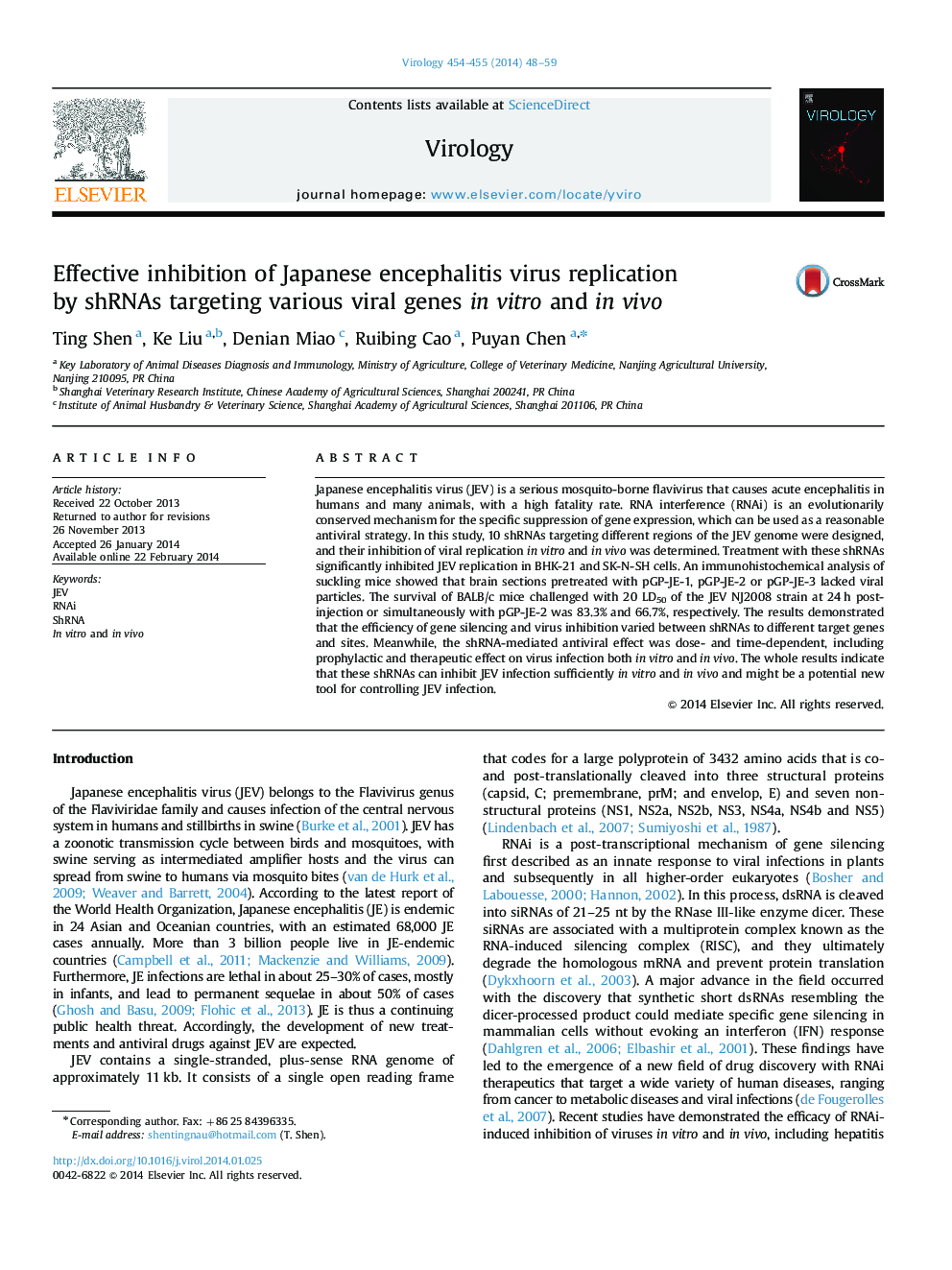| Article ID | Journal | Published Year | Pages | File Type |
|---|---|---|---|---|
| 6140413 | Virology | 2014 | 12 Pages |
â¢The overall screen of shRNAs targeting various JEV genes and regions were performed.â¢shRNAs inhibited JEV infection sufficiently both in vitro and in vivo.â¢shRNA might be a potential antiviral agent for controlling JEV infection.
Japanese encephalitis virus (JEV) is a serious mosquito-borne flavivirus that causes acute encephalitis in humans and many animals, with a high fatality rate. RNA interference (RNAi) is an evolutionarily conserved mechanism for the specific suppression of gene expression, which can be used as a reasonable antiviral strategy. In this study, 10 shRNAs targeting different regions of the JEV genome were designed, and their inhibition of viral replication in vitro and in vivo was determined. Treatment with these shRNAs significantly inhibited JEV replication in BHK-21 and SK-N-SH cells. An immunohistochemical analysis of suckling mice showed that brain sections pretreated with pGP-JE-1, pGP-JE-2 or pGP-JE-3 lacked viral particles. The survival of BALB/c mice challenged with 20 LD50 of the JEV NJ2008 strain at 24Â h post-injection or simultaneously with pGP-JE-2 was 83.3% and 66.7%, respectively. The results demonstrated that the efficiency of gene silencing and virus inhibition varied between shRNAs to different target genes and sites. Meanwhile, the shRNA-mediated antiviral effect was dose- and time-dependent, including prophylactic and therapeutic effect on virus infection both in vitro and in vivo. The whole results indicate that these shRNAs can inhibit JEV infection sufficiently in vitro and in vivo and might be a potential new tool for controlling JEV infection.
